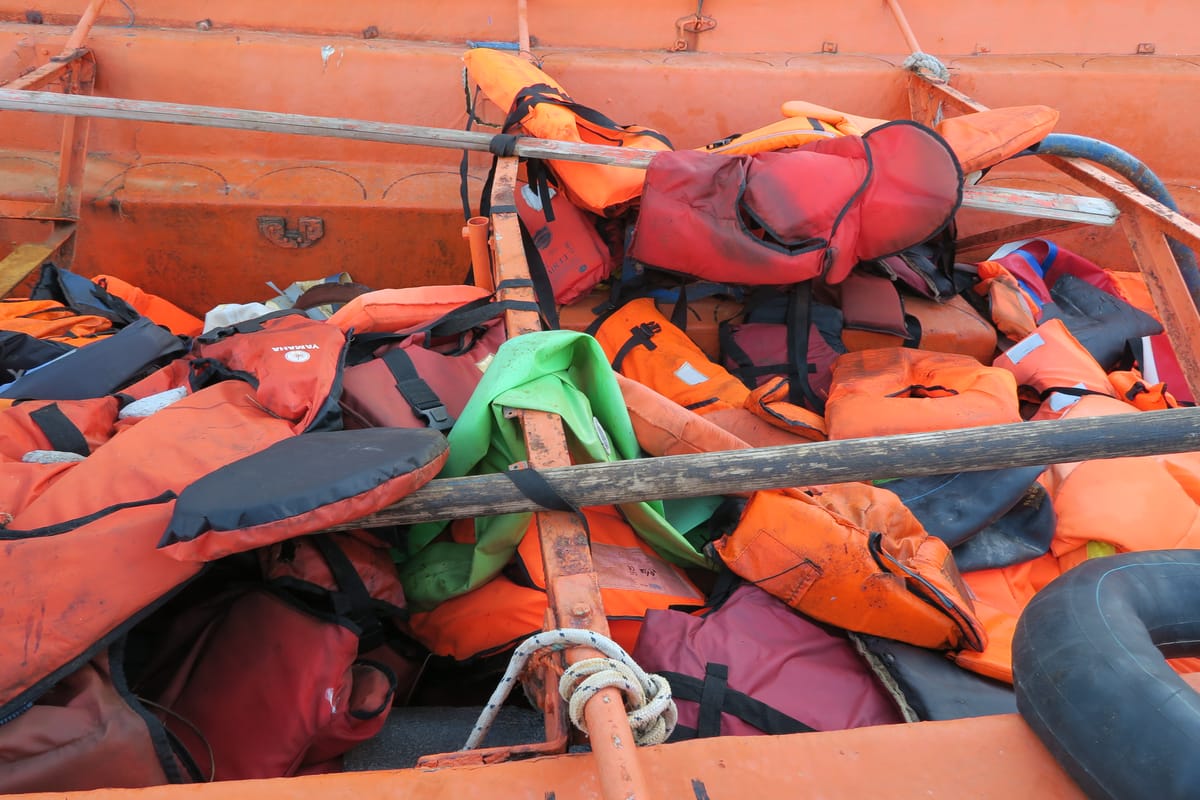Pakistani Migrants Always Live on the Lower Deck - Not Just on the Boat
The last few months have been hard on Pakistanis, and the media bias is real.

Access the Audio Read version of this article directly on Spotify for Podcasters.
"Nations like Pakistan only get respect where there is money involved - a privilege afforded to only a select few of the population."
When a migrant boat sank off the Greek coast in June 2023, it was reported that authorities refused to help in time, resulting in 300 Pakistani nationals killed in the tragedy. Confusion ensued, with unclear reports on the actual scale of the boat disaster - with numbers ranging from 400-750 migrants on board, and varied accounts of what exactly led to the boat capsizing. Amidst the passengers were hundreds of Pakistanis, whose stories particularly came to the forefront when it was revealed that most of them were forced to stay below deck, which for almost all of them meant immediate death when the boat capsized. This isn’t the first time a Pakistani migrant’s story has been met with tragedy.
63 people lost their lives in March this year, when their boat crashed near Italy, including Pakistan’s 27 year-old international level hockey player Shahida Raza. Raza, who was from the Shia Hazara community - an often persecuted minority in Pakistan - had told family back home that she was leaving to find a better life for her children. The idea that someone who’d contributed as much to the country as Raza had now had to flee in such a manner struck deeply many in the country. But while Raza’s story made it to the news, journalist Tahir Imran, who worked on the evacuation of Afghan journalists and refugee campaigns, points out that she was merely one in a group of hundreds that felt the need to flee the country. Amidst the growing number of people leaving Pakistan, religious minorities like Ahmadis and Hazara Shias are the most in number, he points out.
He also links the sub-standard treatment of these migrants on the boat, and eventually when they reach their destination, to the way they are treated at home. “Pakistanis don't get treated well because the state [Pakistan] abandons them. They don't know proper procedure so they start working in black markets, taking these risky routes out which already puts them on the backfoot in the locals’ eyes,” Imran says.
For many Pakistanis, much of life is spent on the lower deck - not just on the boat. Haseeb Ur Rehman, a Pakistani motorcycle mechanic who survived the Greek boat tragedy was one of the few Pakistanis who’d managed to get a spot on the top deck. These spots usually require extra money, which very few Pakistanis going these routes can afford. Imran points out that the discrimination against Pakistanis probably wasn’t so much because of their nationality but simply because of their lack of resources. When looking at the bigger picture, that actually paints a much bleaker reality because it just shows the lack of systemic support and resources these refugees have both back home and in the life they are going towards.
Elaine Alam, a development worker who’s worked with refugees in Pakistan and internationally says: “What I haven't been able to understand yet despite working for refugees for 10 years - is where countries like the US, UK and Pakistan stand on the issue of refugees. Every time we have this issue of policy discourse, we hear new taglines from heads of state and news from various ministries that they’re committed to improving the lives of refugees, but not one thing has gone through.”
The last few months have been particularly hard on Pakistanis with one tragedy after another, and the loss of two more countrymen in the implosion of the Titanic submersible OceanGate right alongside the migrant boat sinking seemed too much for most people. But despite the obvious tragedy of both losses, the media’s clear bias politicised what should have been a time for grief. “We know it was deliberate - to keep the media frenzy, as now experts have said that they knew they were gone immediately and, side by side, there’s a deliberate dehumanisation of migrants and their tragedy,” says Imran. “The migrants’ story could have gotten some coverage or pressure, leading to fast action, but the media and governments nullified all of that.”
In some ways, those covering the two tragedies believe that the side by side comparison of media coverage has brought to light a bias that’s in fact always existed in the media.
The media’s treatment of both incidents has made one thing very clear. Nations like Pakistan only get respect where there is money involved - a privilege afforded to only a select few of the population. For the rest, their choices remain limited to the lower deck or drowning entirely, with little hope of help by the same people who forced them into this situation in the first place.
Image credit: adamansel52 on Flickr





